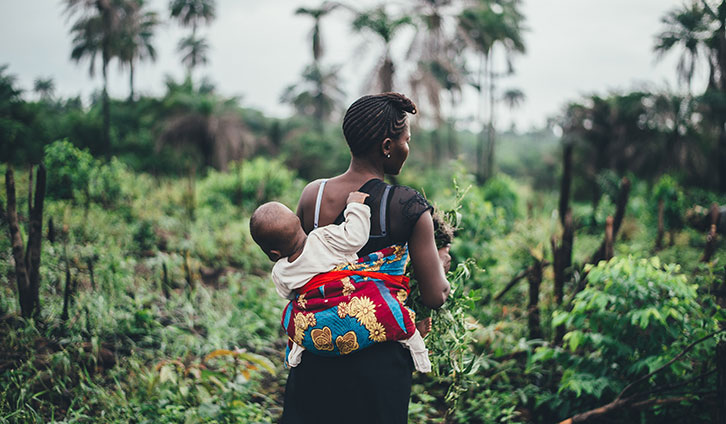Nigeria, a country of abundant resources and a leading role in African affairs, still struggles with one of the highest maternal mortality ratios worldwide. Although maternal deaths have declined globally since 1990, about 100 Nigerian women die each day while giving birth.
The vast disparity between the rich and the poor in the country contributes to the marginalization of the problem. Leaving the most vulnerable to a low provision of accessible health care and nutrition, the disparity has been reported to be the largest among 16 other African countries. The key to reducing maternal mortality is ensuring that every birth occurs with the assistance of a medical representative. The only way to achieve it is to create a demand for government commitment and accountability. And that’s what NotAgain Campaign does.
As the concept of success is highly contextually subjective, I’ve chosen to start our series of AwardSpace Success Stories with the story of an organization with a mission.
Hosted by AwardSpace since 2014, notagaincampaign.org is the website of a Nigerian campaign creating awareness on preventable deaths during childbirth and on the maternal health issues in the country in general.
I contacted them for more information about their greatest challenges and achievements as a civil society organization. Akinlabi Jimoh shared his views on the future of healthcare in the country and commented on the role of the web community they’ve created on their journey.
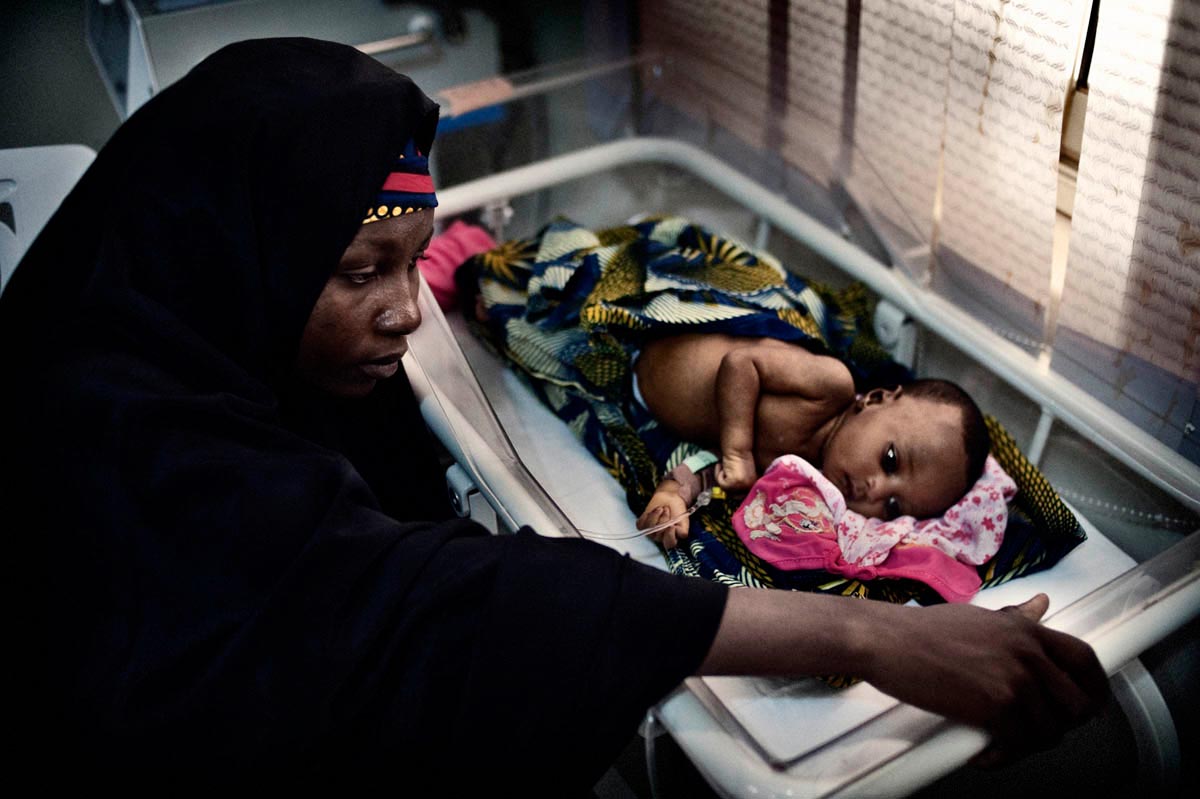
Nigeria, Katsina. Aisha, 21 years old with her newborn baby Maymuna, is a 10-day-old baby with meningitis and fever at the special baby care unit. © Photograph: Pep Bonet
Hello, Akin! Can you please present the NotAgain Campaign to our readers? How did it all start?
NOTAGAIN is a National Campaign slogan to address the needless deaths of Nigerian women while giving life. These avoidable deaths arise from complications in pregnancy or childbirth.
Development Communications Network and a number of Civil Society Organizations came together to initiate a series of projects aimed at creating demand for the government’s commitment and accountability to improve maternal healthcare delivery in Nigeria. It was born out of the passion to ensure that no woman should die while giving life.
What is the current situation of maternal health in Nigeria?
Although analyses of recent trends show that Nigeria is making progress in cutting down the maternal mortality rate, the pace still remains too slow. With the right and adequate measures in place, there will be a quick reduction in the number of women lost during childbearing which is put at 145 of childbearing age every day.
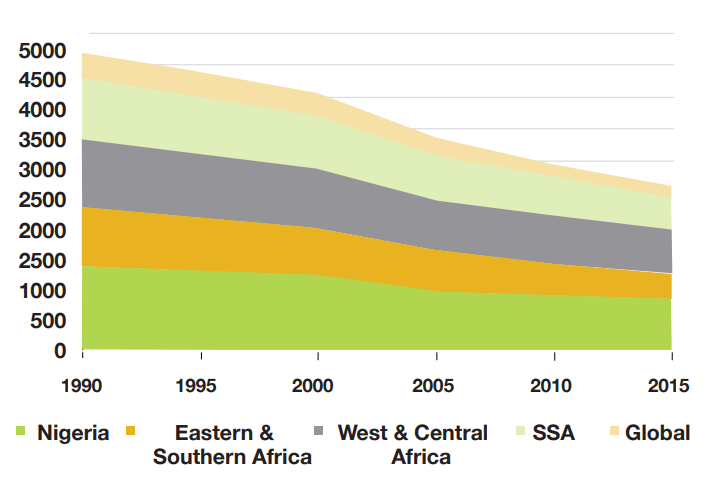
Trends in Maternal Mortality (per 100,000 live births): 1990 to 2015 Source: African Population and Health Research Center
One Nigerian woman dies every 13 minutes – that is 109 women dying each day – from preventable causes related to pregnancy and childbirth. For each death, there are an estimated 30 to 50 women who will experience life-long conditions and disabilities such as obstetric fistula. In total, that’s more than 500 women each day who will die or face serious and lasting health consequences.
What has been the greatest challenge you’ve faced during the development of the project?
At the developmental stage of the project, it was very challenging getting the direct and active contacts (social media handles) of policy/decision-makers who were the main target of the content message. Also, at the onset, some Civil Society Organizations perceived the campaign as a competition for visibility rather than collaboration towards reducing needless deaths of women.
What has been your greatest success?
The media is known to set an agenda for people on what to think. Exposure to media messages disseminated through a variety of channels is considered the most effective way to change the knowledge, attitudes, and behavior of people on issues.
The campaign has led to the evolvement of a community of media practitioners who are able to investigate, analyze and report on maternal health issues using primary and secondary data sources and some of the media reports produced have led to responsive actions from government and policymakers with respect to a provision of quality maternal and child health services. But more still needs to be done.
How did the website help you with your mission?
The website was set up to increase policymakers’ and government officials’ knowledge, response, and action on the maternal health situation in Nigeria.
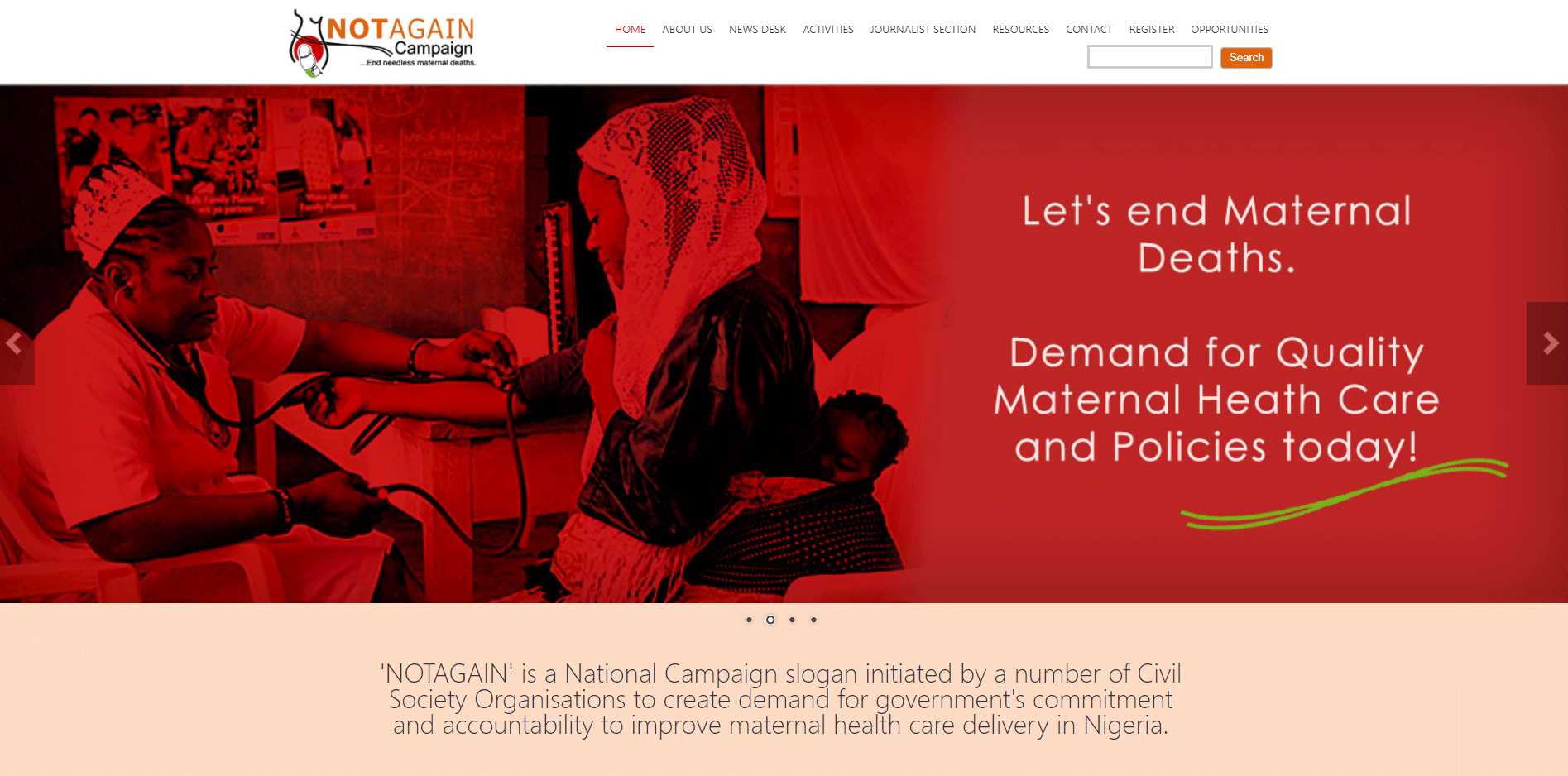
It has served as a platform for sharing and a reference point for reports on maternal health. Though we were focusing on country-level practice the site has become a global icon.
Why is it important to engage in the discussion on maternal health?
Quality maternal healthcare is the extent to which services rendered to mothers improve desired outcomes. In order to achieve this, healthcare must be safe, effective, timely, efficient, equitable, and people-centered.
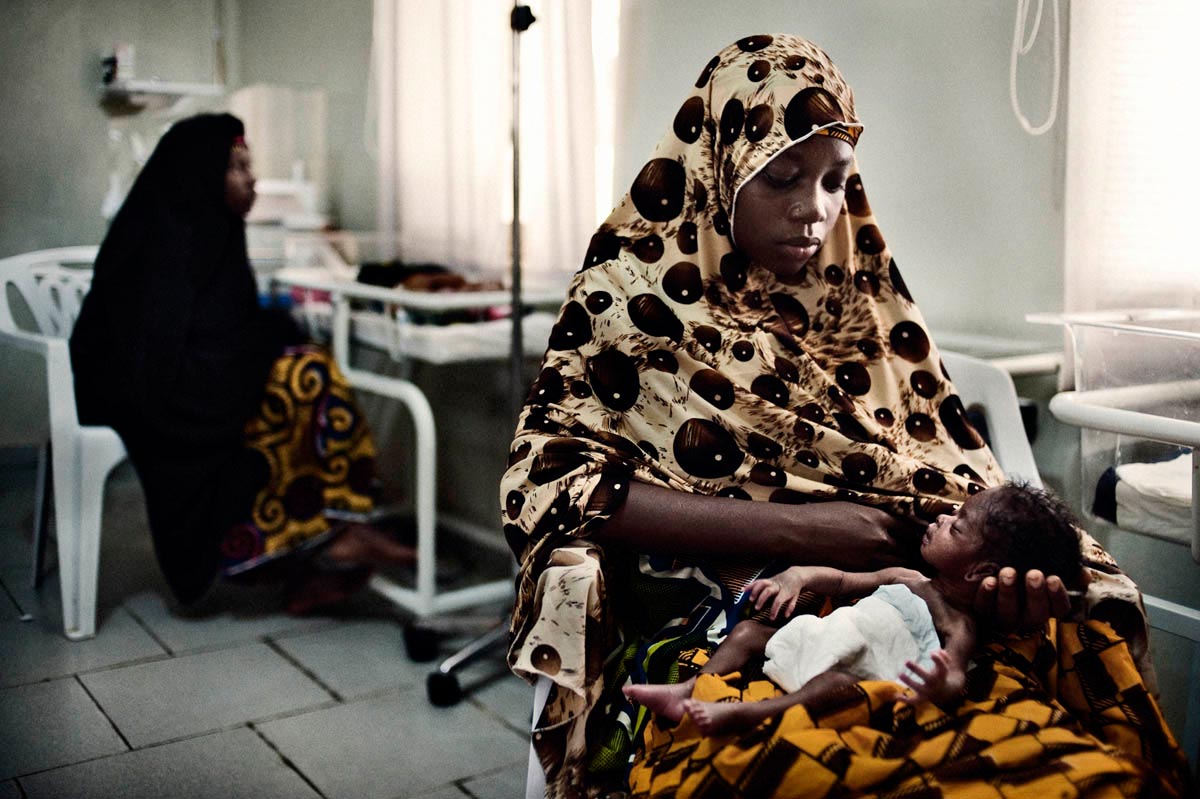
Nigeria, Katsina. A mother with her baby with spina bifida malformation at the special baby care unit. She gave birth at home and then came to the hospital to look after her new baby born. © Photograph: Pep Bonet
Women are about 50 percent of the population and deserve the best care. While the Nigerian government is proactive to address the challenges many mothers still suffer from a lack of access to health, poor conditions, and poor quality of life. A healthy child needs a healthy mother. When the health of a mother is ensured, you ensure the health of the family and that of the nation.
Nigeria’s crude death rate has declined by 2,38% in 2017. How do you see the future?
The future is quite bright but more work still needs to be done towards increasing the pace of ending needless maternal death and other development challenges in the country. There is a need to strengthen the primary health care systems so that more women and newborns have access to quality services and vital medicines before, during pregnancy, and after delivery.
Also, simple interventions such as exclusive breastfeeding, keeping a newborn’s umbilical cord wound clean and dry to prevent infection, and promoting skin-to-skin contact between newborns and their mothers to regulate the baby’s body temperature and breathing will go a long way in preventing maternal and newborn deaths.
AwardSpace has always been a firm supporter of social causes assisting organizations in the development of their web presence.
As a pioneer free hosting provider, we encourage every single person who wants to bring positive change in their community by spreading global awareness of local issues to start their own website today.
If you’re just starting with your social enterprise and need to spread the word about it to the world with a 0$ budget, we offer completely FREE Web Hosting.
Build your website without any expenses and become a change-maker in your community!
